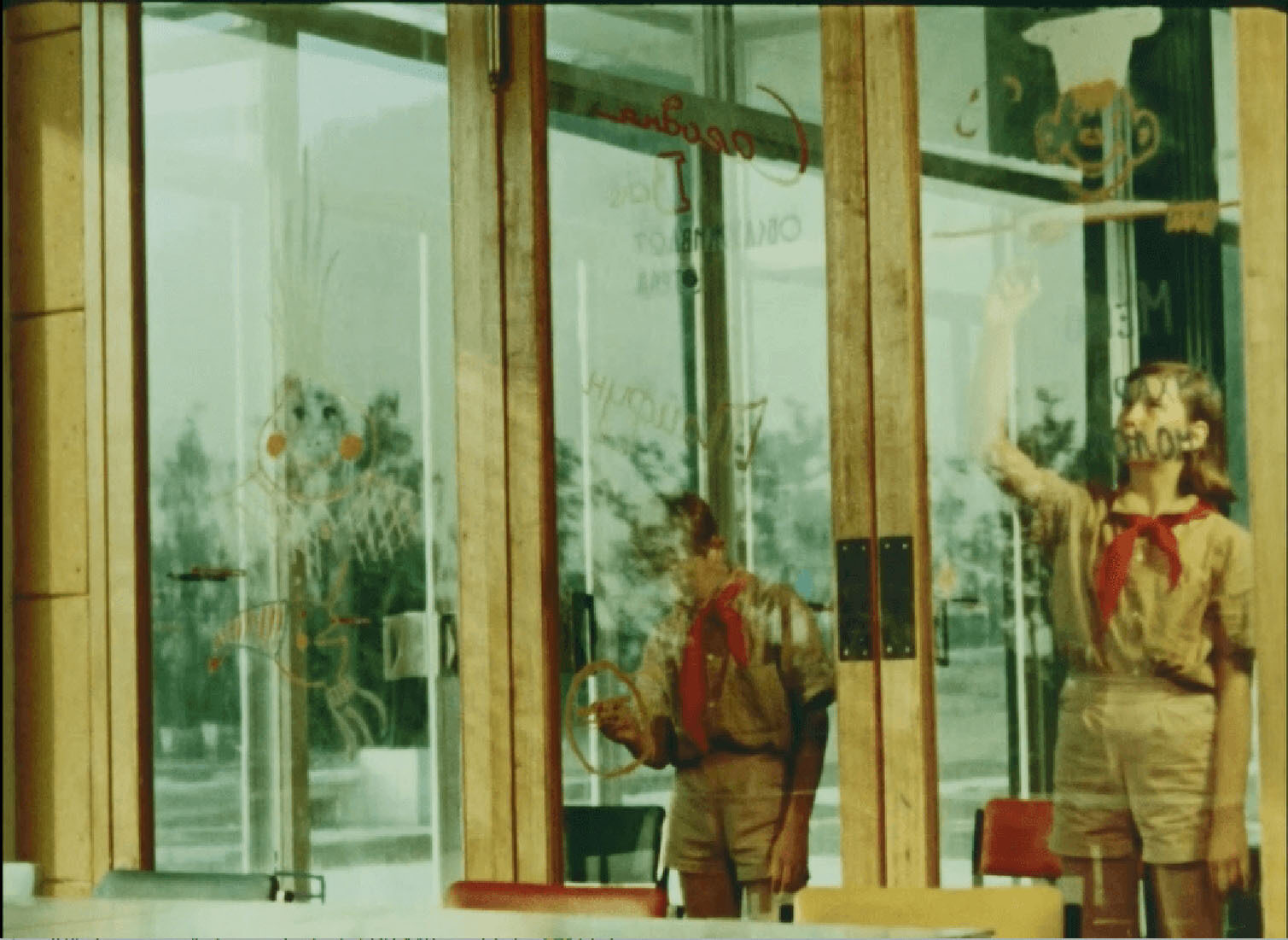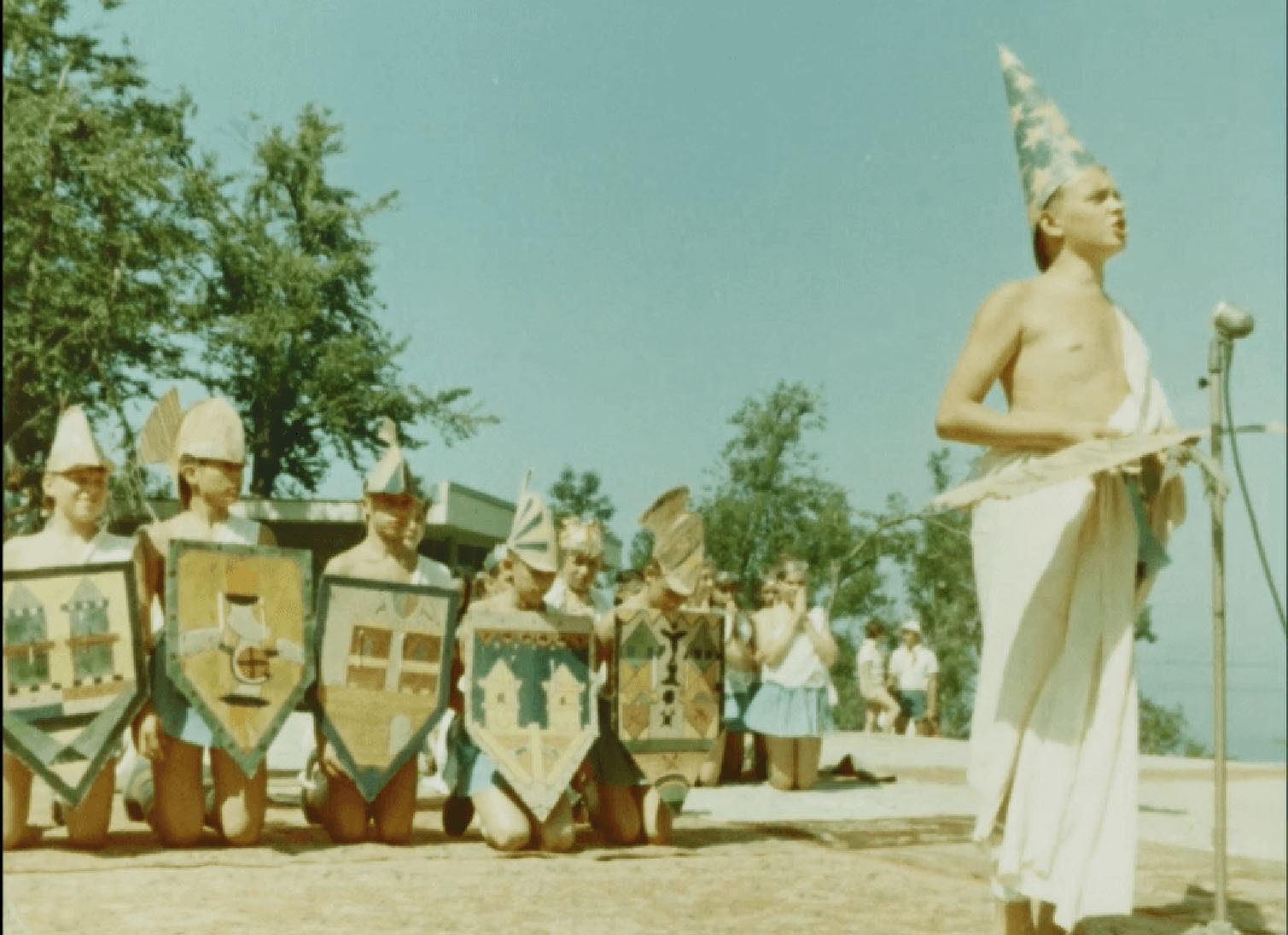Summer holidays: Soviet style
The film The Sun, The Sea and Bright Ideas contained within AM's audiovisual collection Socialism on Film, gives an intriguing insight into culture and society behind the Iron Curtain. It centres around the USSR Pioneer Camp “Orlyonok” near Novorossiysk on the Black Sea and showcases the day-to-day lives of its summertime inhabitants – some of the twelve million Soviet schoolchildren who spent their summer holidays at the 7,800 state-funded camps across the USSR.

The Sun, the Sea and Bright Ideas, 1965. Image © BFI
Its narrator admits regretfully that “the story we’re going to tell you is somewhat sketchy and far from complete” but he needn’t worry, the film certainly achieves its aim of demonstrating the ingenuity and team spirit of the Soviet children as they enjoy their forty day holiday at the camp. Seemingly without any adult intervention or indeed supervision (I have spotted just one person over sixteen), the children create a harmonious community where they swim, play on the beach, dance and sing around a campfire. However, as our narrator reminds us, “self-service, bright ideas and pleasant surprises are encouraged” and here the camp becomes a thinly-guised model of ideal society – the children work together to cook surprise meals for each other, they paint glass doors and windows to prevent accidents and, most spectacularly, they turn “a heap of cardboard” into the means for a full-scale recreation of the ancient Olympic Games, complete with snakes and donkeys.

The Sun, the Sea and Bright Ideas, 1965. Image © BFI
In doing so, they embody the spirit of the Young Pioneers (the Soviet Union’s equivalent of the Scouting movement) and their motto “Всегда готов!”, or “Always prepared!”. Certainly, it is the children’s readiness to act – to wake up and make their beds, to cook a meal for innumerable others or take action against the risk posed by glass doors – which makes this both a distinctly Soviet production and a holiday very different from those in an average August.
For more information about Socialism on Film, including free trial access and price enquiries, please email us at info@amdigital.co.uk.
Recent posts

For centuries, women participated in London’s book and print trades despite formal exclusion from the Stationers' Company. In part one of two, guest blogger Dr Helen Williams highlights what the Company's archives, digitised in Literary Print Culture, show about women’s roles as printers, booksellers, and business owners.

Discover how the Mass Observation Project evolved through the 2010s. Explore societal trends, from climate change to digital shifts, revealed through module IV. Read how researchers and the public document everyday life in a changing world.
